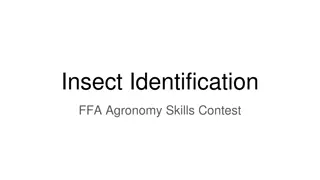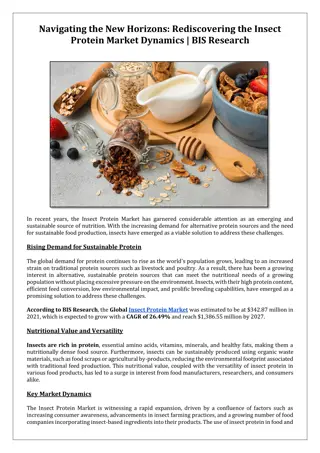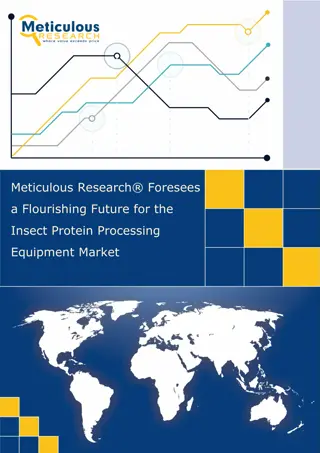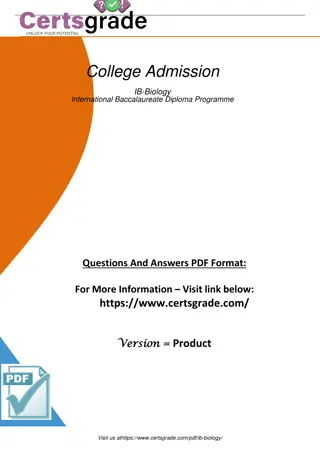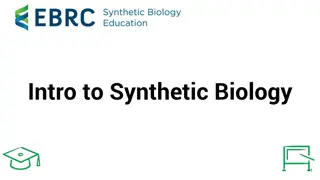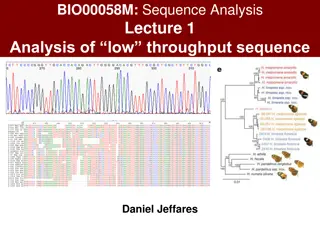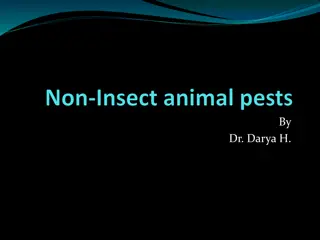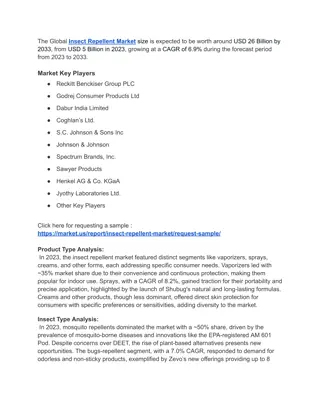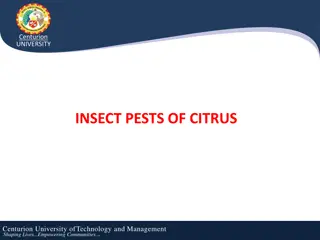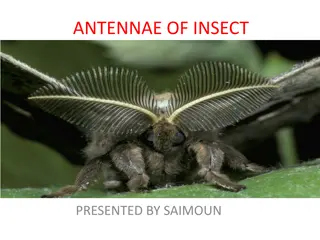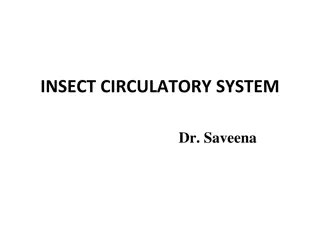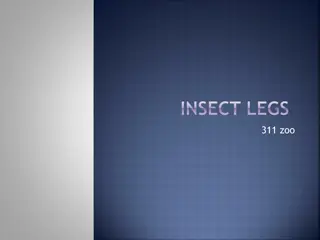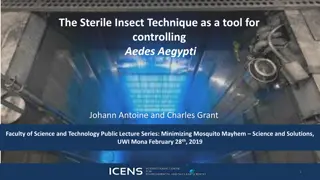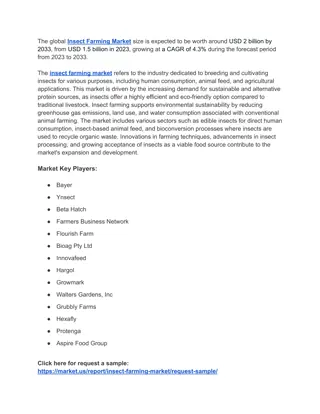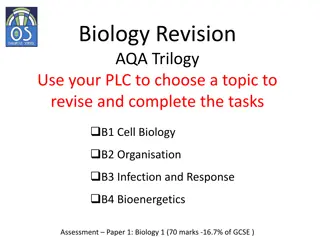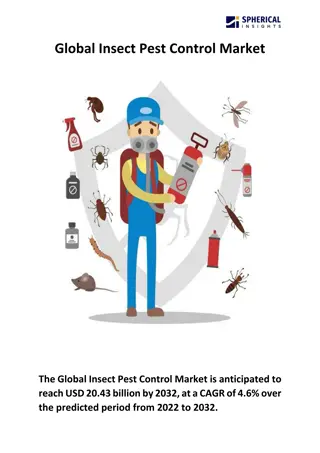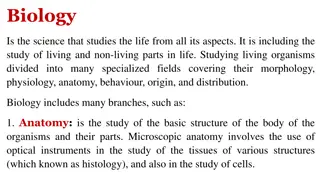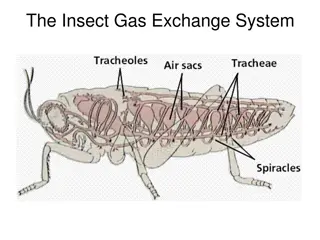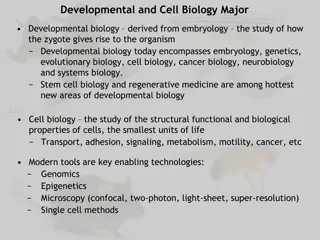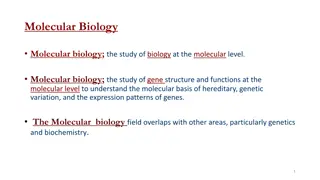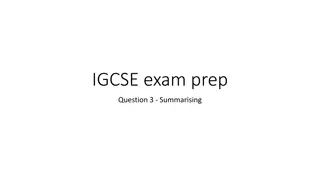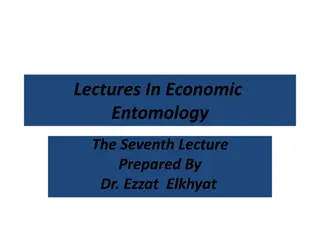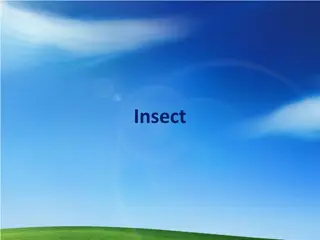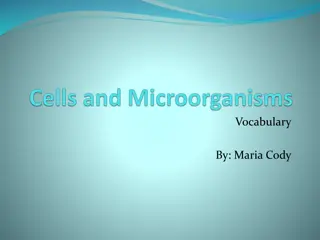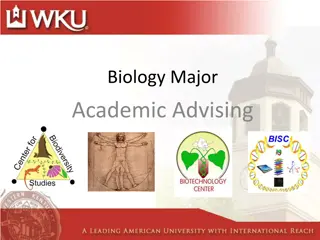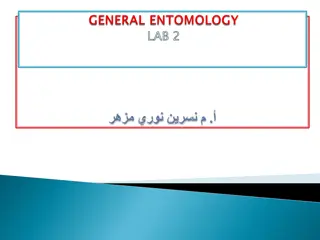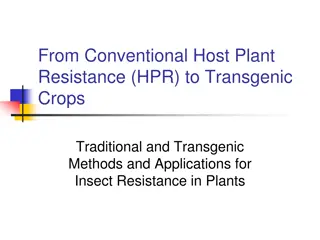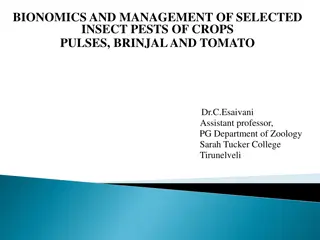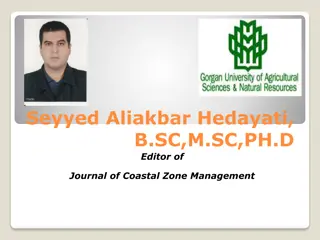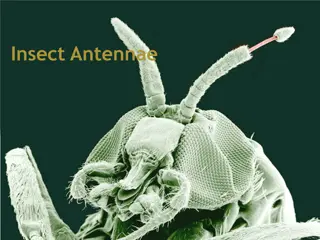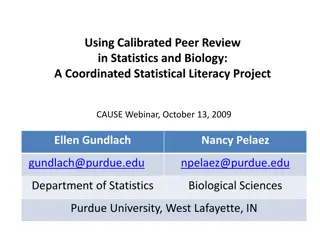Insect Abdominal Structures and Appendages: An Overview
The abdomen of insects plays crucial roles in respiration, reproduction, digestion, excretion, and metabolism. The number of abdominal segments varies across species, with reductions and modifications seen in different insect groups. From the propodeum to pregential and postgenital segments, each pa
1 views • 6 slides
Sustainable Rice Production in Pakistan: Challenges and Strategies
Pakistan's economy heavily relies on rice exports, with the country being a significant producer and exporter. However, challenges such as pesticide residues, major insect pests, and diseases threaten rice production. Key parameters for production include cultivation of improved varieties, pest mana
2 views • 42 slides
8th Singapore Junior Biology Olympiad 2023 Pre-registration Briefing Information
The 8th Singapore Junior Biology Olympiad (SJBO) 2023 aims to promote the advancement of Biology among Secondary School students from Sec 2-4 levels in Singapore. This prestigious competition encourages students to excel in Biology by focusing on practical skills and critical thinking. The structure
2 views • 34 slides
Insect Identification for FFA Agronomy Skills Contest
Explore a variety of insects including the Alfalfa Weevil, Aphid, Army Worm, Assassin Bug, Bean Leaf Beetle, Black Cutworm, Chinch Bug, Colorado Potato Beetle, Common Stalk Borer, Corn Earworm, Corn Rootworm, Cricket, Cucumber Beetle, European Corn Borer, Flea Beetle, Grasshopper, Green Lacewing, Gr
1 views • 37 slides
Navigating the New Horizons: Rediscovering the Insect Protein Market Dynamics
According to BIS Research, the Global Insect Protein Market was estimated to be at $342.87 million in 2021, which is expected to grow with a CAGR of 26.49% and reach $1,386.55 million by 2027.
2 views • 2 slides
Insect Protein Processing Equipment Market Worth $210.6 Million by 2029
The insect protein processing equipment market is driven by innovations in insect protein processing equipment, the increasing focus of insect protein manufacturers to reduce production costs, increased investments in the insect-based protein industry, and the rising demand for insect protein in the
0 views • 3 slides
Achieve Greatness Conquer the IB Biology Diploma Programme Exam
Unlock your potential and excel in the IB Biology Diploma Programme Exam with our comprehensive study resources. Gain access to practice tests, study guides, and expert guidance to elevate your performance. Start your journey towards academic success today!\nClick Here to Get IB-Biology Dumps With 1
1 views • 6 slides
Introduction to Synthetic Biology: Understanding the Core Concepts and Applications
In this introductory lecture on synthetic biology, you will explore the fundamental principles of engineering biology, including the design and construction of new biological entities. The focus is on leveraging molecular, cell, and systems biology advancements to create biological systems that can
0 views • 89 slides
Transformative Power of Sequencing in Molecular Biology
The falling costs of sequencing have revolutionized various fields like genetics, genomics, cell biology, microbiology, and evolutionary biology. Sequencing data has enabled us to understand genomes, revolutionize cell biology techniques, conduct comparative genomics, population genomics, and metage
1 views • 31 slides
Understanding Non-Insect Pests in Agriculture
In this lecture, we delve into important non-insect pests affecting agriculture, such as nematodes, mites, snails, slugs, crabs, millipedes, birds, rodents, and more. Learn about their systematic positions, damages they cause, and characteristics. Explore the world of millipedes and centipedes, thei
0 views • 15 slides
Insect Repellent Market: Strategies for Success in a Competitive Market
The Global Insect Repellent Market size is expected to be worth around USD 26 Billion by 2033, from USD 5 Billion in 2023, growing at a CAGR of 6.9% during the forecast period from 2023 to 2033.\n\nClick here for requesting a sample : \/\/market.us\/
1 views • 3 slides
Insect Pests of Citrus: Identification, Behavior, and Management
Insect pests such as citrus butterfly, fruit-sucking moth, leaf miner, rust mite, and bark-eating caterpillar pose significant threats to citrus plants. These pests can damage citrus seedlings and various fruit varieties. Understanding their appearance, distribution, life cycle, and management techn
4 views • 14 slides
Understanding the Fascinating World of Insect Antennae
Insect antennae, also known as feelers, play a crucial role in sensory perception for insects. They help in detecting chemicals, perceiving various stimuli, and even aid in specialized functions like communication and prey-catching. The structure of antennae varies across insect species, showcasing
0 views • 11 slides
Insect Circulatory System: Overview and Functions
The insect circulatory system comprises an open type, where blood flows through the body cavity. Divided into three sinuses, it houses vital organs such as the heart and nerve cord. The dorsal vessel acts as the main organ of circulation, along with accessory pulsatile organs that supply blood to ap
0 views • 19 slides
Basics of Biology: Introduction, Branches, and Importance
Biology, the study of living organisms, encompasses various branches such as botany, zoology, morphology, and genetics. Understanding biology is crucial for solving environmental issues, conserving natural resources, and pursuing careers in diverse fields like medicine and agriculture. Living organi
0 views • 9 slides
Understanding Insect Legs: Anatomy and Adaptations
Explore the intricate anatomy of insect legs, comprising segments like coxa, trochanter, femur, tibia, and tarsus, each serving specific functions for locomotion. Discover how these legs are adapted for diverse tasks like walking and running in different insect species.
0 views • 18 slides
Utilizing Sterile Insect Technique for Aedes Aegypti Control
The Sterile Insect Technique (SIT) is a biologically-based method used to manage key insect pests by releasing sterile insects to decrease population reproduction. This technique, developed through genetic manipulation and ionizing radiation, has been instrumental in controlling insect populations l
0 views • 13 slides
Insect Farming Market
The global Insect Farming Market size is expected to be worth around USD 2 billion by 2033, from USD 1.5 billion in 2023, growing at a CAGR of 4.3% during the forecast period from 2023 to 2033.\nClick here for request a sample: \/\/market.us\/report\
1 views • 4 slides
Biology Revision with AQA Trilogy: Cell Biology and Organism Organization
In this biology revision session for AQA Trilogy, we delve into topics like cell biology, organism organization, diffusion, osmosis, active transport, enzymes, and more. Explore the differences between prokaryotes and eukaryotes, understand cell specialization, and learn about key processes like mit
0 views • 8 slides
Global Insect Pest Control
The Global Insect Pest Control Market is anticipated to reach USD 20.43 billion by 2032, at a CAGR of 4.6% over the predicted period from 2022 to 2032.
1 views • 4 slides
Exploring the Fascinating World of Biology and Human Biology
Biology is a broad scientific field encompassing the study of living organisms and their various aspects, from anatomy and physiology to genetics and evolution. Branches of biology include anatomy, histology, cytology, physiology, embryology, genetics, molecular biology, biochemistry, zoology, botan
0 views • 21 slides
Understanding the Insect Gas Exchange System
The insect gas exchange system involves spiracles, tracheae, and tracheoles that facilitate the exchange of gases to support respiration in insects. Spiracles lined with chitin control airflow, while tracheae and tracheoles enable oxygen to dissolve into the haemolymph through passive diffusion, sup
0 views • 18 slides
Understanding the Biochemistry of Insect Hemolymph
Insect hemolymph, also known as blood, plays a crucial role in maintaining the tissues throughout the body. It consists of plasma containing hemocytes suspended in a fluid rich in various chemicals. The pH of the hemolymph ranges between 6.4 and 6.8, with variations in volume across different insect
0 views • 9 slides
Biology Program Overview at Southwest Ohio Region
The Southwest Ohio region offers a comprehensive Biology program with a diverse faculty, a large student enrollment, and articulation agreements with universities like University of Cincinnati and Wright State University. The Biology A.S. curriculum includes courses in biology, chemistry, compositio
0 views • 6 slides
Explore the World of Developmental and Cell Biology
Developmental biology, stemming from embryology, investigates how organisms evolve from a zygote. It merges various fields like genetics, cell biology, and cancer biology. Cell biology focuses on cell properties and behaviors, using tools like genomics and microscopy. Research areas include cancer c
0 views • 8 slides
Exploring Molecular Biology and Cell Science
Molecular biology delves into the study of biology at the molecular level, focusing on gene structure and functions to comprehend hereditary traits, genetic variation, and gene expression patterns. Cells, the fundamental units of life, vary in shape and function but share basic structures. The Three
0 views • 31 slides
Philosophy of Biology: A Methodological Provocation Before the Emergence of Biology
Philosophy of biology before the formal establishment of biology as a discipline explores the evolution of terms and theories related to the science of life. By delving into key philosophical works from the 19th and 20th centuries, the interaction between history, philosophy, and science in the fiel
0 views • 13 slides
Embracing Insect-Based Diets for a Sustainable Future
Emphasizing the urgency of meeting the growing protein demand sustainably, the article explores the benefits of entomophagy - consuming insects as food. Experts advocate for insect-based diets to address environmental concerns, citing insects as a rich protein source with lower greenhouse gas emissi
0 views • 6 slides
Understanding Economic Entomology: A Focus on Pest Management in Horticultural Plants
Explore the world of economic entomology and delve into the study of insects that either benefit or harm humans and their products. Learn about the general definitions of pests, taxonomy of pests, and why insect pests are considered the most important group of pests. Discover the impact of insect pe
0 views • 24 slides
Understanding Insect Life Cycles and Management Strategies
Exploring the world of insects, this content delves into the life cycles and damage caused by key insect pest groups, emphasizing the importance of knowing their life stages for effective pest management. It covers insect development, how insects cause injury, pest control principles, threshold leve
0 views • 20 slides
Exploring Biology: Key Terms and Concepts in Cell Biology
Dive into the fascinating world of biology with a focus on essential terms and concepts in cell biology. Learn about the structures and functions of cells, from bacteria to organelles, and understand the fundamental components that make up living organisms. Explore the roles of mitochondria, nucleus
0 views • 18 slides
Biology Major Academic Advising Overview
This overview covers the aims and expectations of a Biology major academic advising session, including requirements for graduation, grades, advisor information, and supporting courses. It details the importance of meeting academic standards, selecting electives, and understanding credit hour distrib
0 views • 15 slides
The Anatomy of an Insect Head: A Detailed Look
Explore the intricate structures of an insect head, including the segmentation, sclerites, sutures, and specialized features like the occiput and ocular sclerites. Discover the unique characteristics that define the head capsule in insects through frontal, lateral, dorsal, and posterior views, shedd
0 views • 10 slides
Evolution of Plant Resistance to Insects: From Traditional Methods to Transgenic Crops
The transition from Conventional Host Plant Resistance (HPR) to Transgenic Crops for insect resistance in plants has a rich history dating back to the 1790s. Traditional methods like breeding for Hessian fly resistance in wheat have paved the way for modern techniques. Factors influencing insect res
0 views • 36 slides
Bionomics and Management of Insect Pests in Crops: Insights and Strategies
Explore the bionomics and management practices for key insect pests affecting crops like pulses, brinjal, and tomato. Learn about the life cycles, damage caused, and effective control measures for pests such as the greasy cutworm and plume moth.
0 views • 30 slides
Dr. Seyyed Aliakbar Hedayati - Marine Biology and Fisheries Expert
Dr. Seyyed Aliakbar Hedayati holds a Ph.D. in Marine Biology and is currently an Assistant Professor of Marine Biology at Gorgan University. His research interests include marine biology and fisheries. He has published various research papers on topics such as plasma metabolites in fish and length-w
0 views • 15 slides
Insights into the Career Journey of Jarrod Leland at Novozymes
Jarrod Leland, a Ph.D. holder in Entomology from VT, transitioned from being a Government Scientist to a Scientist at Novozymes focusing on insect pathogens. With vast experience in the field, he now leads a team of 20 individuals, emphasizing the use of insect pathogens as alternatives to chemical
0 views • 17 slides
Exploring the Fascinating World of Insect Antennae
Insect antennae serve as vital sensory organs for these creatures, offering more than just a sense of touch. They play key roles in detecting odors, changes in humidity, sounds, and air speed. This article delves into the diverse types of insect antennae, showcasing their unique structures and funct
0 views • 19 slides
Enhancing Statistical Literacy in Biology Education through Collaborative Approach
Collaborating between statistics and biology disciplines can address challenges in transferring knowledge across fields, emphasizing experimental design, ethics, and data analysis in biology education. Integration of statistical reasoning in biology classes and quantitative competencies in modern bi
0 views • 33 slides
Insect Management Update for Corn, Sorghum, and Sugarcane Aphids
Explore the latest updates on insect management for corn, sorghum, and the impact of sugarcane aphids. Learn about potential yield loss, thresholds for management, best insecticides, current issues in corn, and strategies for effective pest control. Stay informed to protect your crops and optimize p
0 views • 33 slides



